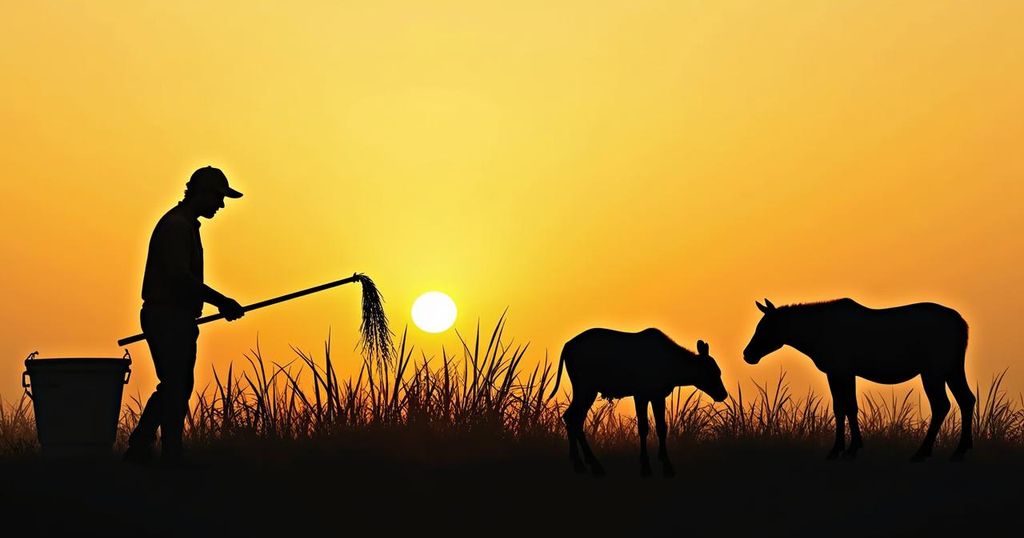India’s decision to ease rice export restrictions has been positively received in South Africa, a country that imports approximately 10 million tonnes of rice annually. Industry leaders indicate that this change will help stabilize prices that had risen due to previous restrictions and fulfill local market demand. This announcement coincides with the upcoming rice harvest season in India, further contributing to optimistic market forecasts.
India’s recent decision to ease restrictions on rice exports has been met with enthusiasm by South African importers. Pranav Thakkar, of Dev International, one of the largest importers of Indian goods in South Africa, stated, “It is welcoming news for all the importers like us, as South Africa imports roughly 10 million tonnes of rice every year. After Thailand and Vietnam, which account for 70 percent of imports of rice in South Africa, India is the next biggest exporter of rice to South Africa.” Thakkar noted that the relaxation not only boosts India’s export capabilities but also helps satisfy the demands of southern African nations. In response to the announcement, orders were placed promptly, with shipments already on their way. The lifting of the ban on short-grain rice and white rice is expected to have a global impact, as rice prices have started to decrease. Thakkar elaborated that short-grain white rice is prevalent in South African markets and is often re-exported to neighboring regions. He also anticipates that the prices for India-specific rice varieties, which had spiked to levels similar to basmati rice, are expected to normalize following the ban’s removal. Wandile Sihlobo, Chief Economist at the South African Agricultural Business Chamber, shared this optimistic sentiment, indicating that global rice prices have softened significantly due to expected plentiful supplies. He remarked, “The news that India is likely to ease rice export restrictions as supply increases and that its elections have concluded has perhaps also helped.” Sihlobo highlighted that India’s ban affected non-basmati white and broken rice, which typically represented 45 percent of India’s exports. Following the ban’s enforcement on July 20, 2023, global rice prices surged amid fears of supply shortages, although the situation was effectively mitigated without a major crisis due to India’s substantial contribution to the global market, accounting for around 26 percent of rice production. South Africa relies entirely on imports for its rice needs—approximately one million tonnes annually—due to unsuitable climate conditions for local rice cultivation. Restaurant owners and consumers specializing in Indian cuisine expressed their relief and gratitude at the prospect of reduced rice prices, which had recently risen, impacting both operational costs and household budgets. A restaurant proprietor commented on the increased preference for rice alongside curries and highlighted the economic pressure faced by consumers, while a housewife noted the shift in her cooking habits due to rising prices but expressed optimism regarding future affordability.
The easing of rice export restrictions by India comes amidst a complex global agricultural landscape marked by fluctuating prices and supply shortages. Rice is a staple in many diets worldwide, with India being a significant contributor to the global rice supply, accounting for approximately 26 percent of rice production. The South African market heavily relies on imports for its rice consumption, making India’s export policy changes particularly impactful. The recent announcement follows a troubling period characterized by increased tariffs and bans that had previously driven prices up. Hence, the removal of these restrictions is seen as a crucial step toward stabilizing global rice prices and meeting the demand in various markets, including South Africa, which imports about 10 million tonnes of rice each year.
The easing of rice export restrictions by India holds considerable promise for South Africa’s rice importers and consumers, as it is expected to lead to a decline in prices and ensure a steady supply. Industry stakeholders such as Pranav Thakkar and Wandile Sihlobo have recognized the positive implications of this decision, emphasizing the critical role that Indian rice plays in meeting South Africa’s dietary and economic needs. The adjustment of supply chains reflects a productive response to previous market stresses, signaling a return to more sustainable pricing for vital food resources.
Original Source: m.economictimes.com






